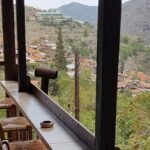History and Cultural Heritage of Pedoulas Village
Pedoulas Village, nestled in the Troodos Mountains of Cyprus, boasts a rich history and cultural heritage that dates back to ancient times. Its origins are intertwined with the broader historical narrative of Cyprus, providing a fascinating glimpse into the island’s past. The village is believed to have been established during the Byzantine period, with its development significantly influenced by various historical epochs, including the Frankish, Venetian, and Ottoman periods.
The traditional architecture of Pedoulas Village is a testament to its historical depth. Visitors are often captivated by the iconic stone houses, which reflect the craftsmanship and aesthetic sensibilities of past generations. These structures, with their thick stone walls and red-tiled roofs, are designed to withstand the region’s climatic conditions while offering a glimpse into the architectural practices of yesteryears. Narrow cobblestone streets weave through the village, creating a picturesque setting that transports visitors back in time.
Among the key historical sites in Pedoulas, the Church of Archangel Michael stands out as a beacon of cultural and religious significance. This UNESCO World Heritage site is renowned for its stunning frescoes, which date back to the 15th century. The frescoes, depicting various biblical scenes, are a masterpiece of Byzantine art and offer invaluable insights into the religious and artistic heritage of the region. The church itself is a prime example of the cross-in-square architectural style prevalent during the Byzantine period.
The cultural traditions of Pedoulas Village are equally compelling. The village is home to several festivals and events that celebrate its rich heritage. Traditional crafts such as woodcarving and icon painting continue to thrive, with local artisans preserving techniques passed down through generations. These crafts not only serve as a means of livelihood but also as a cultural bridge connecting the past with the present.
Overall, Pedoulas Village stands as a living museum, where history and culture seamlessly blend to offer an enriching experience. Its well-preserved architecture, significant historical sites, and vibrant cultural traditions make it a hidden gem in Cyprus, inviting visitors to explore and appreciate its unique heritage.
Natural Beauty and Attractions in Pedoulas Village
Pedoulas Village, nestled within the heart of the Troodos Mountains, is a sanctuary of natural splendor and captivating landscapes. Surrounded by lush forests and picturesque valleys, this hidden gem offers visitors breathtaking views that are nothing short of awe-inspiring. The verdant greenery and serene atmosphere make Pedoulas a perfect escape for nature enthusiasts and those seeking tranquility.
The area is renowned for its outdoor activities, with hiking being one of the most popular pursuits. Numerous trails, such as the Artemis and Atalanti nature trails, meander through the forests and valleys, offering hikers an immersive experience in the region’s natural beauty. Bird-watching is another favored activity, as the diverse avian population includes species that are unique to Cyprus, providing both amateur and seasoned bird-watchers with ample opportunities to observe and photograph these creatures in their natural habitat.
In addition to its natural allure, Pedoulas is home to several notable attractions that reflect its rich cultural heritage. The Byzantine Museum, located in the village, houses an impressive collection of religious artifacts and icons, offering visitors a glimpse into the village’s historical and spiritual past. Similarly, the Folklore Museum provides an in-depth look at traditional Cypriot life, showcasing tools, garments, and household items that have been preserved through generations.
Dining in Pedoulas is an experience in itself, with local taverns and restaurants serving up traditional Cypriot dishes that tantalize the taste buds. Visitors can savor delicacies such as souvla, halloumi cheese, and kleftiko, paired with locally produced wines that embody the flavors of the region. The hospitality of the village’s eateries ensures that every meal is a memorable one.
For those planning a visit, the best times to explore Pedoulas Village are during the spring and autumn months when the weather is mild and the natural surroundings are at their most vibrant. Accommodation options range from quaint guesthouses to comfortable hotels, catering to a variety of preferences and budgets. The village is easily accessible by car, with well-marked roads leading from major cities and towns in Cyprus, making it a convenient destination for both short trips and extended stays.






